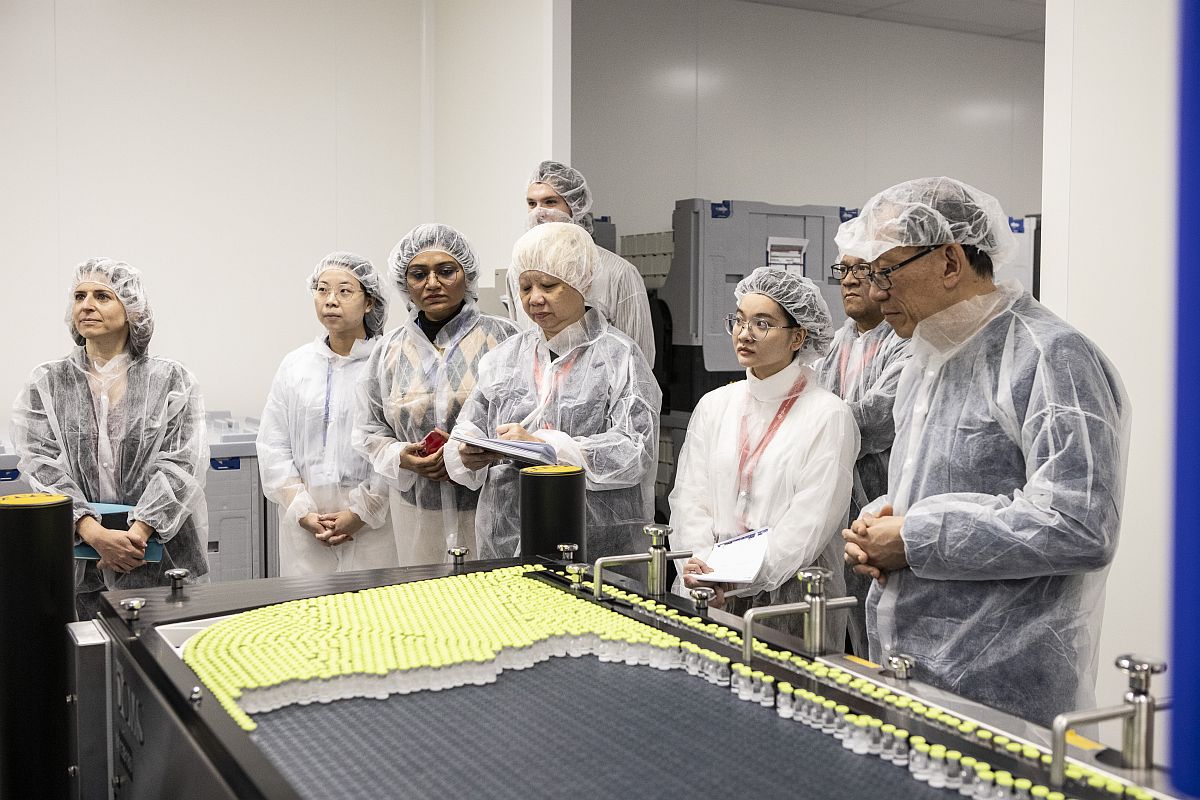PUURS, Dec 22 – Pfizer’s global supply site in Puurs, Belgium, produces a million vials of injectable vaccines and medicines a day, or a whopping 600 vials a minute.
During a visit last October to Pfizer’s manufacturing site in the city of Puurs for an educational media event by the global pharmaceutical company, journalists from media outlets in Asia were shown the filling lines and inspection area of the plant.
“We produce 400 million to 500 million vaccine doses a year,” Luc Van Steenwinkel, managing director of Pfizer Manufacturing Belgium NV, told reporters last October 25.
He added that production of Pfizer’s other vaccines and medicines was barely disrupted during the Covid-19 pandemic. “We kept supply going”.
Pfizer’s Puurs manufacturing plant – which employs more than 4,000 people and has 40 acres of floor space – is one of the largest production and packaging sites in the worldwide Pfizer network, besides being the company’s biggest in Europe.
The more than 400 million doses of injectable vaccines and medicines produced annually in the Puurs site go to patients in over 170 countries worldwide.
According to Van Steenwinkel, Pfizer’s Puurs manufacturing site produced its first vial of the Covid-19 vaccine in September 2020, a few months before regulatory approvals in December 2020.
Pfizer’s mRNA Covid vaccine supply for Malaysia was produced in Puurs.
As journalists were taken to the filling line of the Puurs plant – when workers were filling and finishing PCV13 vaccine – a Pfizer staff member named Tess related the extremely demanding conditions during the Covid-19 pandemic, when “the workload was enormous”.
“It was a stressful period, but I think everyone was very proud of their work during the global pandemic,” she told reporters.
Pfizer’s Puurs manufacturing site can fill 600 vials a minute, with an automated inspection machine that checks every vial. The rejection rate for defective vials is only 3 per cent.
At the plant, staff work 24 hours a day, seven days a week, with 17 operators for every shift in a particular unit.
“What we’re making is PCV13 for babies. When you see your child get vaccinated, it’s a really special moment,” Tess said.
Malaysia’s Ministry of Health (MOH) previously announced the rollout of the catch-up pneumococcal vaccination programme (CHUPP) last May that will administer PCV13. The pneumococcal vaccine helps protect against serious illnesses like pneumonia and meningitis.
At the inspection area of Pfizer’s Puurs plant, with an inspection of the Depo-Provera birth control shot, six to eight cameras continuously take photos of all angles of all vials coming through.
“Inspection is a bit faster than filling. The inspection itself is done by the machine at 300 vials a minute,” Ben Mees, a senior production manager at the manufacturing site, told reporters.
“We’re getting better machines,” he added.








